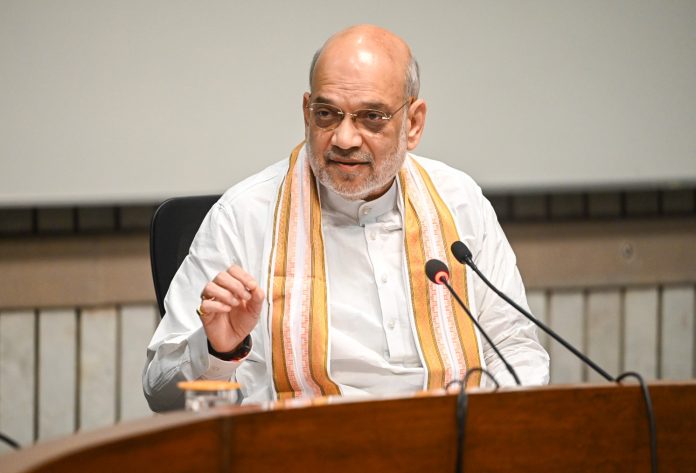New Delhi: Union Home Minister and Minister of Cooperation Amit Shah announced on Monday that three new criminal laws have come into effect across the country, emphasizing that these laws are designed to be justice-oriented and victim-centric rather than punitive. Shah highlighted that the new laws prioritize justice over punishment, ensuring speedy trials and the protection of victims’ rights.
Addressing a press conference in New Delhi, Shah addressed misconceptions being spread about the new laws, which aim to create public confusion. He clarified that every aspect of the new laws has been extensively discussed with various stakeholders over the past four years, making this one of the most thoroughly debated legislations in Independent India.
Shah stated that after 77 years of independence, India’s criminal justice system is becoming completely indigenous. The new laws have been implemented in every police station nationwide, replacing punishment with justice, and prioritizing speedy trials and the protection of victims’ rights over delays. Unlike the previous laws, which primarily protected the rights of the police, these new laws include provisions to safeguard the rights of victims and complainants.
The new laws reflect the Indian spirit within the entire criminal justice system. Shah noted that many outdated provisions from British rule, which caused problems for people, have been removed and replaced with relevant sections. The new laws prioritize sections and chapters in line with the spirit of the Indian Constitution, with a special focus on crimes against women and children. A new chapter with 35 sections and 13 provisions addresses these crimes, making the laws more sensitive. Additionally, for the first time, mob lynching is defined and severe punishments are provided for it.
Shah emphasized that the British-era sedition law has been abolished and replaced with a new section addressing anti-national activities, which includes severe penalties for those harming India’s unity and integrity.
The Home Minister assured that the new laws would create the most modern judicial system once fully implemented. They are designed to incorporate technological advancements for the next 50 years, with 99.9% of police stations across the country already computerized. The new laws will digitize procedures such as FIRs and charge sheets, and set deadlines for completing all processes, ensuring timely justice. Shah mentioned that justice from the filing of an FIR to the Supreme Court can now be achieved within three years.
Forensic investigations are now mandatory for offenses punishable by seven years or more, which will expedite justice and increase the conviction rate to 90%. Shah highlighted the establishment of the National Forensic Science Laboratory in 2020 and the forthcoming trained manpower and forensic science university campuses.
Shah also discussed the Bharatiya Sakshya Adhiniyam 2023, which leverages technology in evidence collection, enhancing the credibility of electronic evidence such as server logs, location data, and voice messages. The laws will be available in all languages listed in the Eighth Schedule of the Constitution, and court proceedings will also be conducted in these languages.
The Ministry of Home Affairs, state Home Departments, and the Ministry of Justice have put considerable effort into implementing these laws. Shah noted that the laws include relevant new sections while removing problematic ones. He mentioned that over 23,000 Master Trainers have been trained to educate about 22.5 lakh policemen on the new laws, along with 21,000 judiciary officials and 20,000 public prosecutors.
Shah concluded by stating that the laws were thoroughly discussed in Parliament, with significant participation from members. He refuted claims that the laws were passed after the expulsion of members of Parliament, noting that the expelled members had the option to participate in discussions but chose not to do so.


